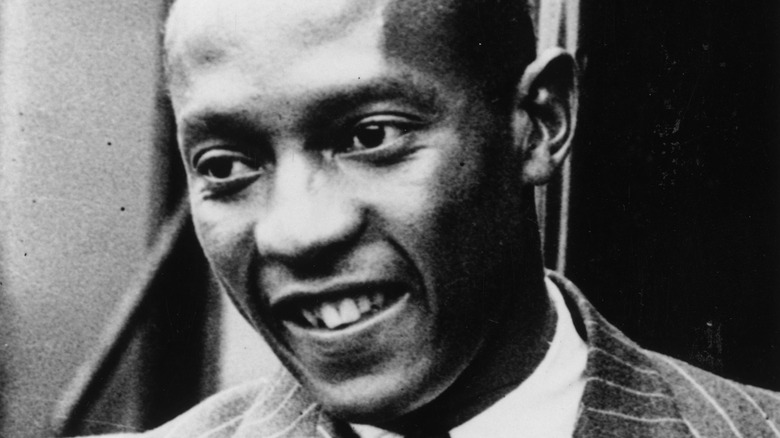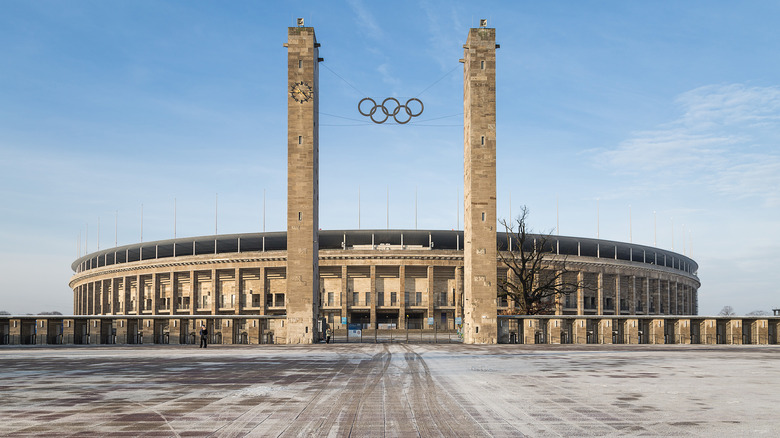The Unlikely Friend Jesse Owens Made At The 1936 Olympics
In 1936, Jesse Owens made history at the Berlin Olympics after winning an impressive four gold medals. Jesse Owens grew up in an America that was just two generations away from the end of slavery, with Jim Crow laws in full effect across the country. Owens faced enduring hardship, as he was the son of a sharecropper and worked in that capacity alongside his family for much of his early life (via TIME). He not only faced discrimination from his home county, but at 22 had walked into the heart of Nazi Germany to compete against his international peers.
When the games were over, Hitler himself walked away from the defeat of his own athletes with only heightened racial dogma. In spite of the dehumanizing framing of the games by their host country, Owens left Germany having forged a surprising, yet meaningful friendship with long-jumper Carl Ludwig Long. In many ways Hitler's ideals in human form, "Luz" Long chose to defy expectations and express solidarity with Owens (via Independent).
Even in death, Luz Long wanted to be friends with Jesse Owens
According to Owens, Luz Long had only been a competitor of his until he learned that Jesse had one out of three chances left to qualify (via Independent). Taking time to speak with Owens, Long's suggestion of the former repositioning his distance marker supposedly spared the American, whose later victory prompted Hitler to leave the stadium. While their initial meeting was admittedly embellished, the two shared a real bond and stayed in contact until 1939 when Germany invaded Poland.
In his last letter to Owens, Long asked his friend to seek out his son should he fall in battle, so that their friendship could continue (via Gariwo). In 1943, Long did indeed die after serving on the Italian front. After the war, Owens made good on his friend's request and met with Long's son as well (via Taipei Times). Later in life, Owens still looked back fondly on Long, finding their friendship and what it represented to be far more valuable than his athletic achievements.

